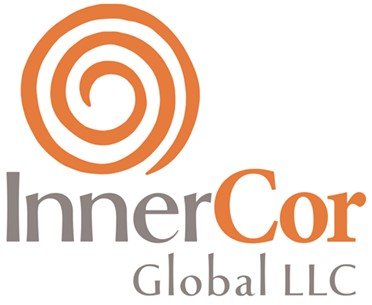Organically layering tools for deeper insight and transformation
Even after 18 months, I am still in awe by the wisdom of our CEO, Ahmed AL Jahdhami, who back then introduced me as their new internal coach for the top leaders of our company from his own personal context: “I have benefited from a coach… you get objective feedback without the baggage… We’ve hired Karen to coach our top leaders.”
He simply offered an invitation, with the influence that a top leader garners.
They came. First in small batches, and as word got out and they began hearing positive impact from others, both about me and the coaching process—trust is critical as an internal coach—more called to ask for coaching.
What has resulted from this “invitation to coaching” is those leaders who are intrinsically motivated to be better at leading, who are willing to take stock of their strengths and yet ask themselves “what do I want more of? who do I want to be as a leader in the future? what will be my legacy?” have become my current cadre of coachees. They are the ones who take risks, grow their mindset, stretch outside their comfort zone, and are truly committed to the coaching process (proactively scheduling their own coaching sessions, identifying their own stretch goals and action, following up, engaging with an accountability buddy), transforming themselves from “good to great leaders” along their trajectory of leadership.
When I shared this choice-based approach with other corporate coaches they were surprised that a 360-type or leadership potential assessment didn’t “start” the coaching process as is often the norm. True, most of my coachees have been given or exposed to various leadership assessments, models, and tools over their career from the “learning & development” space. But when they first came to me, it was open-ended, with simply their desire to discover more about themselves, and take action steps that would bring them closer to who they wanted to be as a leader with a growth mindset. Throughout their year-long coaching journey with me, I have organically layered more models and tools for their deeper insight and transformation as they desired more. The “push” comes from them. As true of many of my current coachees (reflective in the coaching survey results) they not only gained new insights about themselves, but also receive positive feedback about the behavioral changes they have incorporated that are getting noticed by their direct leader, team, and key stakeholders. Their performance has improved. And as our company continues to grow and expand, some have been offered increased responsibility.
The various coaching tools and models I organically incorporate throughout a leader’s transformational journey begin with my toolbox of co-active, brain-based coaching methodologies, and integrate along their unique discovery-ride additional tools and models for further exploration, reflection, insight, and action, such as: a saboteur assessment, a simple qualitative 360-feedback that yields significant insight, an online EQ assessment, and a cultural dimension instrument, to name a few.
Working within the cultural context of developing and growing talent in the Middle East, the premise with expat coaches and trainers is often: “we are the expert” and know exactly what our coachees need in order to be developed and successful. “Just tell me what to do, Karen!” “What book to read?” "What are the answers I need to know?"
Explaining, and more importantly, modeling the difference between mentoring and coaching--where the later stems from a belief that you, as coachee, are naturally, creative, resourceful, and whole*--is critical, if we truly want leaders to learn to seek awareness, reflect for themselves, be open to being challenged, accept feedback, and take courageous actions outside their comfort zone to become the leader of the future they so desire.
*philosophical foundation of the International Coach Federation https://coachfederation.org/find-a-coach/experience-coaching
What's holding you back from a growth mindset?
What has been your biggest challenge as you’ve recently transitioned to a new role?
Who do you want to be as a leader?
- Karen du Four des Champs, PCC, CPCC, ORSC, your “thought partner” and “accountability partner” along your transformational journey

